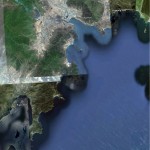After drawing up a 10-Year Economic Development Plan at the beginning of this year, North Korea has announced several measures to readjust its ties with China from an aid-dependent relationship to an economic partnership. Will North Korea switch from its militaristic focus to economic development? What are the implications of the recently announced Hwanggumpyong island project in the middle of the Yalu River? Nanfang People Weekly magazine talked to Zhang Liangui (Zhang), a specialist in Korean issues and professor at the International Strategic Research Bureau at the Party School of the Central Committee of CPC, on these issues.
Q: What is the rationale behind North Korea’s efforts to facilitate the joint development of Hwanggumpyong with China?
Zhang: There are several reasons. The most straightforward motive is obviously to ameliorate the shortage of foreign money, since North Korea is suffering from international sanctions as a result of its nuclear weapon development.
Beyond that, North Korea wants to strengthen its economic ties with China, avoiding a hopeless isolation from the international community. Third, this move also reflects North Korea’s territorial concerns.
Q: Why do you think the cooperation has something to do with territorial issues?
Zhang: Because of the border on the Yalu River. Usually rivers on the border between two sovereign nations are demarcated on a half-to-half basis, which means there’s a middle line of control accepted by both sides.
However, the Yalu River is jointly held by both China and North Korea, while the latter has exclusive possession of Hwanggumpyong island.
For years due to alluvial deposition, the island has continued to expand. It now has abutted on the Chinese side, and local government has to build a fence along the border.
Under this circumstance, North Korea has de facto control over the part of Yalu River to the east of Hwanggumpyong island.
Thus the development on Hwanggumpyong island may help North Korea secure its territorial and river possession.
With the erection of buildings and infrastructure, North Korea expects Chinese developers to build the ground base, cement the foundations and free the island from the threat of alluvial erosion. If there’re many buildings, North Korea will have safe and unchallenged control over the island.
After acquiring Hwanggumpyong, North Korea asked farmers to plant trees and develop farmland. This caused the island to expand as well as causing disputes between the two sides. China should be fully aware of these concerns if it is looking for long-term cooperation over Hwanggumpyong.
Q: Why China is willing to cooperate and provide 80 percent of the funds?
Zhang: Many Chinese believe the US will try to contain China, especially at a time of tension among Northeastern Asian countries. The security concerns may give China and North Korea impetus for cooperation.
China also perceives North Korea’s instability, both economically and politically. China’s aid to North Korea is understandable and necessary in pursuing its goal of regional stability.
But China should be clear that its aid doesn’t serve the purpose of saving a specific government. The survival of any particular government is up to North Korea’s domestic will. And China doesn’t need to intervene in everything.
Q: Why did North Korea grant the opportunity to a Hong Kong enterprise? Will Hwanggumpyong become another Hong Kong, as North Korea wishes?
Zhang: It seems that North Korea is particularly enthusiastic about cooperating with Hong Kong firms. The precedent is the casino in Rason. A casino managed by Hong Kong executives can better woo Chinese tourists, as well as corrupt officials and outlaws.
However, Hong Kong’s prosperity is based on its transparent government, advanced legal system, high credibility, well-established infrastructure and financial markets, and in particular, stability.
It remains a difficult mission for today’s North Korea to build another Hong Kong.
Q: Will the Hwanggumpyong project attract more Chinese business people in the future?
Zhang: North Korea has reason to expect more investors to come. But I think there are several reasons preventing a great number of investors from going to Hwanggumpyong. According to my experience in dealing with Chinese business people, many of them complain of a lack of lawful regulations and the capricious North Korean economic policies.
Besides, many countries including China don’t accept credit cards issued by North Korea. Understandably, much of China’s national investment in North Korea comes out of political reasons rather than economic motivations. Unless North Korea has a stable and predictable government as well as international credibility, the prospect of foreign investment in North Korea is bleak。
Q: What do you think of the 10-Year Economic Development Plan, announced recently by the North Korean government?
Zhang: It seems 10 years is a bit long for North Korea’s management habits. So far, North Korea hasn’t been able to follow through on many of its long-term economic projects.
For example, the Kaesong Industrial Park was once planned to be a lucrative business produced by North-South Korean cooperation.
In May 2009, North Korea unilaterally announced a demand for wage and rent rises and scrapped the agreement they had signed up to. In 2010, the sinking of the Cheonan warship further hampered industrial activities in the region. Thus I think the 10-Year Economic Development Plan remains provisional and is intended more or less for propaganda purpose.
Q: Why does North Korea stress that its 10-Year Economic Development Plan “isn’t a reform and opening-up policy?”
Zhang: This is obviously aimed at China. Many Chinese media are under the delusion that North Korea is emulating China’s example to get rid of poverty and develop its country. In fact, North Korea is very unhappy about this claim.
North Korea is still against the idea of “reform and opening-up,” albeit now inexplicitly. It once equated “reform and opening-up policy” with revisionism and imperialists’ supposed conspiracy to topple socialist regimes.
During Kim Jong-il’s visit on June 5, while the Chinese media speculated about North Korea going through “reform and opening-up policy,” the North Korean media never used this phrase.

